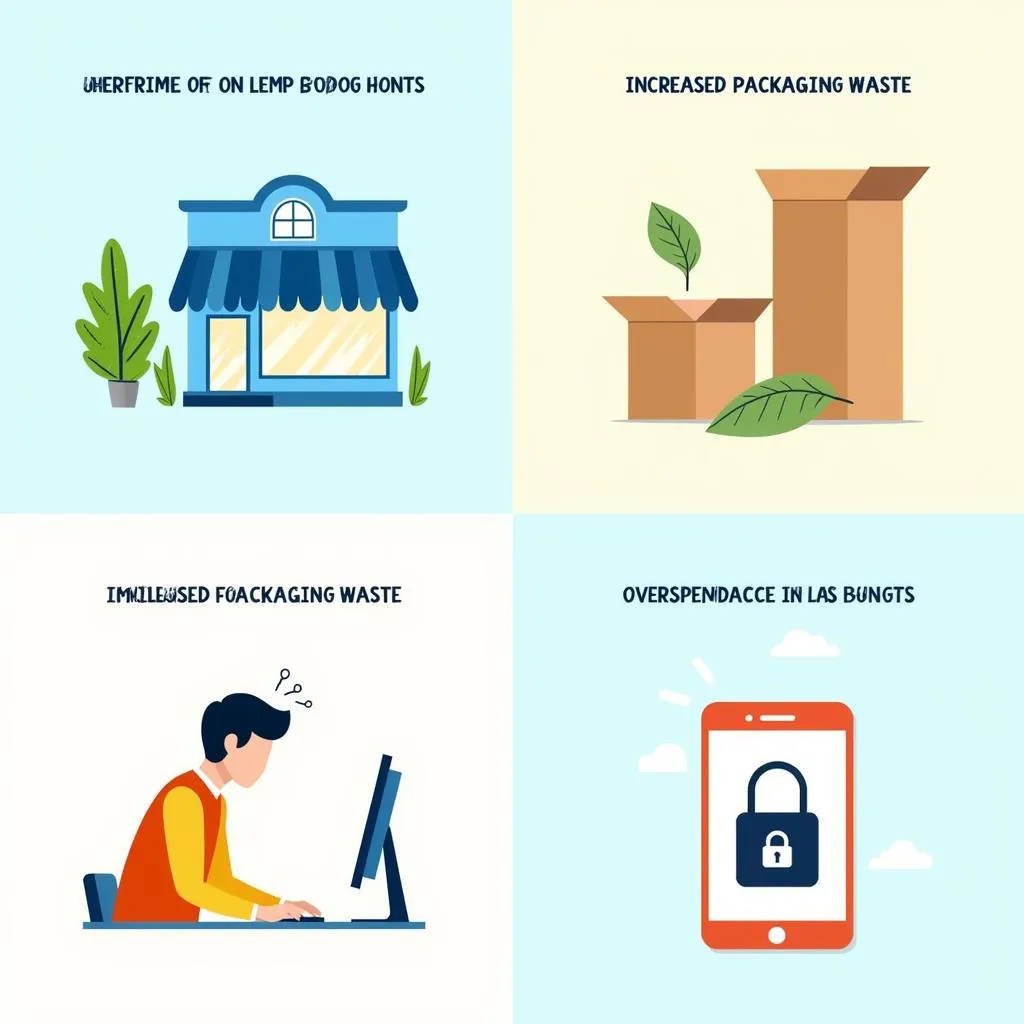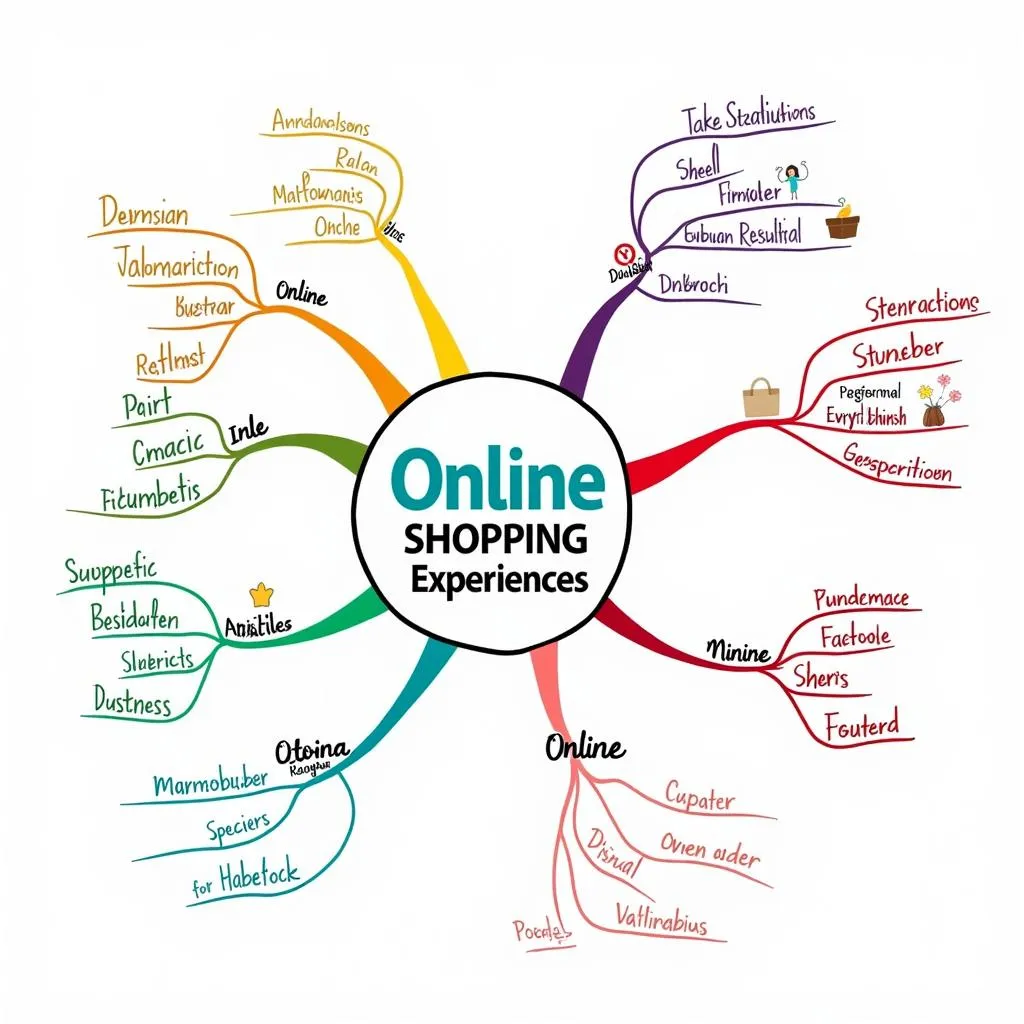The topic of describing an online purchase you regret is a common one in IELTS Speaking tests. It allows examiners to assess candidates’ ability to discuss personal experiences, express opinions, and use relevant vocabulary. This theme has appeared frequently in past exams and is likely to remain popular in future tests due to the prevalence of online shopping in modern life.
Part 1: Introduction and Interview
In this section, the examiner may ask general questions about online shopping. Here’s an example question with a suggested answer:
Examiner: Do you often shop online?
Candidate (Band 8-9 answer): Absolutely, I’m quite the online shopping enthusiast. I find it incredibly convenient to browse and purchase items from the comfort of my home. In fact, I’d say I do about 70% of my shopping online these days, especially for things like books, electronics, and even groceries. The ease of comparing prices and reading reviews makes it an attractive option for me.
Part 2: Long Turn
Here’s a sample cue card related to the topic:
Describe an online purchase you regret.
You should say:
- What you bought
- Where you bought it from
- Why you regret buying it
- And explain what you learned from this experience
Sample answer (Band 8-9):
I’d like to share an experience about an online purchase I deeply regret, which was a pair of supposedly high-end wireless earbuds I bought from a popular e-commerce platform last year.
The product listing boasted impressive features, such as noise-cancellation technology and extended battery life, which piqued my interest. The brand wasn’t one I was familiar with, but the overwhelmingly positive reviews and attractive price point convinced me to take the plunge.
Unfortunately, my excitement was short-lived. Upon receiving the earbuds, I immediately noticed that the build quality was subpar. The plastic felt cheap and flimsy, quite unlike what I’d expect from a premium product. To add insult to injury, the sound quality was mediocre at best, with the much-touted noise-cancellation feature being virtually non-existent.
What really made me regret this purchase was the realization that I had fallen for fake reviews. After digging deeper, I discovered that many of the glowing testimonials were likely written by paid reviewers or bots, which explained the discrepancy between my experience and the product description.
This experience taught me several valuable lessons. Firstly, I’ve become much more discerning when it comes to online reviews, now looking for detailed, critical feedback rather than just high ratings. Secondly, I’ve learned the importance of researching brands thoroughly, especially when dealing with tech products. Lastly, this incident has made me appreciate the value of buying from reputable sellers, even if it means paying a bit more.
In essence, this regrettable purchase has made me a much savvier online shopper, and I now approach online deals with a healthy dose of skepticism.
 Regrettable online purchase of wireless earbuds
Regrettable online purchase of wireless earbuds
Follow-up questions:
Examiner: How did you handle the situation after realizing the product wasn’t as described?
Candidate (Band 8-9 answer): I immediately initiated the return process through the platform’s customer service. While it was a bit of a hassle, I was persistent in presenting my case, providing photographic evidence of the product’s poor quality compared to the description. Fortunately, the platform had a robust buyer protection policy, and after some back-and-forth, they issued a full refund. This experience reinforced the importance of knowing my consumer rights and the value of shopping on platforms with strong customer protection measures.
Examiner: Do you think online shopping platforms do enough to protect consumers from misleading products?
Candidate (Band 8-9 answer): That’s a complex issue with room for improvement. While many platforms have implemented measures like verified purchase reviews and return policies, the sheer volume of transactions makes it challenging to catch every misleading listing. I believe platforms could do more, such as implementing stricter vetting processes for sellers and using AI to detect patterns of fake reviews. However, it’s also crucial for consumers to educate themselves and approach online shopping with a critical eye. It’s a shared responsibility between platforms, sellers, and buyers to create a trustworthy online marketplace.
Part 3: Two-way Discussion
Examiner: How has online shopping changed consumer behavior in recent years?
Candidate (Band 8-9 answer): Online shopping has revolutionized consumer behavior in numerous ways. Firstly, it has dramatically increased convenience, allowing people to shop 24/7 from anywhere with an internet connection. This has led to more impulse purchases but also more informed decision-making due to easy access to product information and reviews.
Another significant change is the shift towards a more global marketplace. Consumers now have access to products from around the world, which has broadened their choices but also increased competition for local businesses.
Furthermore, online shopping has fostered a culture of instant gratification, with features like same-day delivery becoming increasingly common. This has raised consumer expectations for speed and service across all retail sectors.
Lastly, the rise of personalized marketing and recommendations based on browsing history has changed how consumers discover products, leading to more targeted shopping experiences but also raising privacy concerns.
Examiner: What are some potential drawbacks of the increasing popularity of online shopping?
Candidate (Band 6-7 answer): There are several drawbacks to the growing popularity of online shopping. One major issue is the decline of physical retail stores, which can lead to job losses and empty storefronts in town centers. This can negatively impact local communities.
Another problem is the environmental impact of increased packaging and transportation associated with online deliveries. This can contribute to more waste and higher carbon emissions.
Online shopping can also make it easier for people to overspend because it’s so convenient to make purchases with just a few clicks. This might lead to financial problems for some individuals.
Lastly, there are concerns about data privacy and security, as online shopping requires sharing personal and financial information over the internet.
 Visual representation of online shopping drawbacks
Visual representation of online shopping drawbacks
Examiner: How might online shopping evolve in the future?
Candidate (Band 8-9 answer): The future of online shopping is likely to be shaped by emerging technologies and changing consumer preferences. I envision several key developments:
Firstly, augmented and virtual reality technologies could revolutionize the online shopping experience. Imagine being able to virtually try on clothes or visualize furniture in your home before purchasing. This could significantly reduce the need for returns and increase customer satisfaction.
Artificial intelligence and machine learning will probably play a larger role in personalizing the shopping experience. We might see AI assistants that can understand and predict our preferences with uncanny accuracy, making highly tailored product recommendations.
Sustainability is likely to become a major focus. We may see innovations in eco-friendly packaging and delivery methods, such as drone deliveries or electric vehicle fleets, to reduce the environmental impact of online shopping.
The line between online and offline shopping could blur further with the adoption of technologies like smart mirrors in physical stores that can access our online profiles and shopping history.
Lastly, blockchain technology might be used to enhance transparency in supply chains, allowing consumers to easily trace the origin and journey of products they purchase online.
These advancements could make online shopping even more convenient and immersive, but they’ll also likely bring new challenges related to privacy and data security that will need to be addressed.
Key Vocabulary and Phrases for High Scores
-
Pique one’s interest [verb phrase] /piːk wʌnz ˈɪntrəst/: To arouse curiosity or interest.
Example: The unique design of the product piqued my interest immediately. -
To take the plunge [idiom] /teɪk ðə plʌndʒ/: To commit oneself to a course of action.
Example: After much consideration, I decided to take the plunge and make the purchase. -
Add insult to injury [idiom] /æd ˈɪnsʌlt tə ˈɪndʒəri/: To make a bad situation even worse.
Example: To add insult to injury, the customer service was unresponsive when I complained. -
Discerning [adjective] /dɪˈsɜːnɪŋ/: Having or showing good judgment.
Example: Being a discerning shopper can help you avoid regrettable purchases. -
Savvy [adjective] /ˈsævi/: Knowledgeable and well-informed.
Example: Experienced online shoppers tend to be quite savvy about spotting good deals.
 Illustration of key online shopping vocabulary
Illustration of key online shopping vocabulary
Examiner’s Advice
To score high in the IELTS Speaking test when discussing online purchases you regret:
- Use a variety of vocabulary related to online shopping, consumer behavior, and personal experiences.
- Provide specific details about your purchase to make your answer more engaging and authentic.
- Express your thoughts clearly and coherently, using appropriate linking words to connect your ideas.
- Show your ability to reflect on experiences by explaining what you learned from the situation.
- Practice speaking about both positive and negative aspects of online shopping to demonstrate balanced thinking.
- Use idiomatic expressions naturally to enhance the fluency of your speech.
- Be prepared to discuss broader implications of online shopping in Part 3, showing your ability to think critically about societal trends.
Remember, the key to success is not just about having a good vocabulary, but also about using language flexibly and appropriately to communicate your ideas effectively.
Describe a product you bought that did not meet your expectations can be a similar topic that you might encounter in your IELTS Speaking test. Practicing with various related themes will help you build a versatile vocabulary and improve your ability to discuss consumer experiences fluently.


